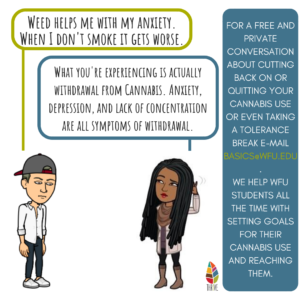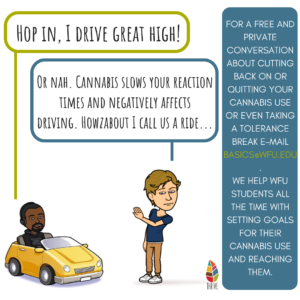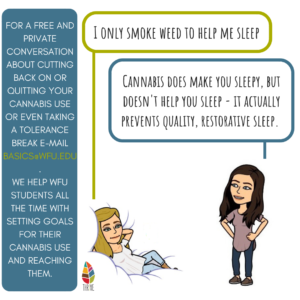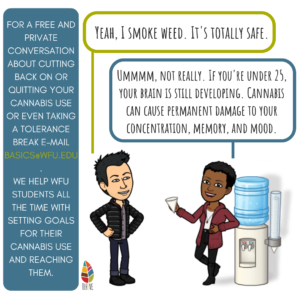4/20
I heard from a couple of students last Friday who did not get an email about their refund. Did a little digging and it turned out there were a few students whose emails were glitched and their refund email went to an old email address instead of their wfu.edu email. Our apologies for the glitch. Here is what they need to do:
Students can log in to DEAC to see their refund amount. For student-athletes and students who receive federal aid, we are required to refund them. Their version of the email had specified “A check will be mailed to your permanent address…” – so no action is needed on their part to claim the refund. (And if they try to go to the refund site to allocate their refund, they will get an error message saying they have already allocated. This just means they are not allowed to allocate because we have to refund them. Again, no action is required :))
For all other undergraduate students, they will go to https://refunds.wfu.edu/my-refund/ and login with their WFU ID and password, then decide how they want to allocate their refund. They will need to allocate by May 15th (sooner is preferable of course).
Today is 4/20 – and you are probably very aware that today is a major pop culture reference to marijuana use and getting high. If we were on campus, there would be some informational tents near the Pit or Benson for students to get information about marijuana and offering free and confidential screenings. My excellent colleague who works with substance abuse prevention, Peter Rives, wanted me to share the kinds of info that your students might have seen, so I am sharing them below.
This time of COVID-19 has brought about all kinds of uncertainty and anxiety (for everyone) and this might be a time where students are especially struggling with alcohol or other drugs. Peter’s office is here to support them – even at a distance.
In the realm of tending to wellbeing and good self-care, our outstanding provost, Rogan Kersh (’86), shared this in his monthly e-newsletter to faculty and staff:
A physician friend describes one approach as “STEM.” *Not the Science/Tech/etc. as defined in the academic realm, but:
S = sleep: 7-8 hours if you’re at all able.
T = talk: to loved ones, friends, therapist if you have one, or to the wall—always an impassive/non-judgemental listener in my experience.
E = eat: protein, fiber (lots of fruits/veggies), healthy fats, whole grains; don’t skip meals!
M = move: walk outside (encouraged, even in ‘stay at home’ times—just stay close to your residence). Inside you can stretch; practice yoga; dance wildly to loud music and embarrass your loved ones.
If you – or your Deacs – are not STEMming, hope these suggestions might help.
 Finally, here is a picture sent to me from a Faculty Drive resident from a morning walk on campus. Their comment was “it really looks like the Quad misses everyone.”
Finally, here is a picture sent to me from a Faculty Drive resident from a morning walk on campus. Their comment was “it really looks like the Quad misses everyone.”
As always, stay well, my friends :)

Cannabis use is not good for your mental health or academic achievement. Did you know that cannabis use is correlated with lower GPA and lower ratings of overall wellbeing and health?

Did you know that the risk of fatal traffic crashes goes up 12% on 4/20 after 4:20 pm compared to other days? For people under 21, the increase is even higher – 38%. Ref: DOI: 10.1001/jamainternmed.2017.8298

“I get all the sleep I need” said no college student ever. Don’t rob yourself of rest by smoking before bed.

There’s a $60B cannabis industry in North America working hard to convince you that weed is not only safe but beneficial. That couldn’t be farther from the truth for those of us whose brains are still developing.
— by Betsy Chapman, Ph.D. (’92, MA ’94)
